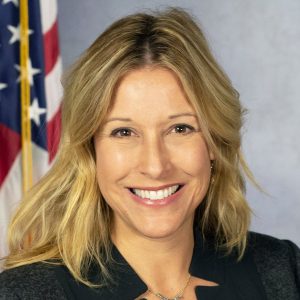By Melissa Shusterman, State Representative, 157th District
Earning low wages and working 12-plus hour days while trying to provide for families and pay bills have always been concerns of direct support professionals. Like most Pennsylvanians working throughout the COVID-19 pandemic, DSPs’ stresses are only growing.
DSPs provide around-the-clock care for people living with intellectual disabilities or autism, physical disabilities and seniors. They are as essential to society as frontline health care workers, yet their wages barely keep them out of poverty. Low pay, long days and the challenges many of them face relying on public transportation all feed into Pennsylvania’s DSP crisis. Though this always has been the challenge facing DSPs, the pandemic makes matters even worse for them and those who rely on their care.
The low wages and challenges of the job already discouraged many people from choosing a career as a DSP, and the pandemic is only making the work increasingly dangerous. These factors are converging and shrinking the pool of trained professionals available to care for our loved ones. The storm is threatening – if not taking – more lives every day.
Neither the vulnerable among us nor the heroic Pennsylvanians who care for them can afford another minute of inaction.
Therefore, I am drafting two bills to ensure that nonprofit organizations, such as the ARC and Goodwill Industries, and DSP workers have the tools they need to survive the COVID-19 pandemic.
One bill would establish a grant program for the commonwealth’s nonprofit organizations, funded by the federal Coronavirus Aid, Relief, and Economic Security (CARES) Act.
“Nonprofits providing community-based services are suffering from lost revenue due to the virus. Employment support services and community awareness services have all been suspended or greatly modified,” Valley Forge Educational Services Executive Director Grace Fornicola points out.
“While we support the governor’s phased approach to safely reopening our communities, nonprofits like Valley Forge Educational Services would benefit tremendously from state grant funding, similar to school district funding, to help sustain our ability to provide much-needed services to individuals with disabilities.”
My other bill would provide more affordable public transportation for caretakers of individuals with disabilities and the elderly. This would ensure that transportation expenses do not deter these workers from providing our loved ones with the best care possible while saving them money so that they can provide for their own families.
“Making public transportation more affordable for DSPs would make a huge difference for our employees and the people we serve,” says Vicky Mayer, executive director of Royer-Greaves School for Blind and Royer-Greaves Services. “Many DSPs will only consider assignments that are close to where they live, to keep their transportation costs down. Mitigating those costs would mean more viable employment opportunities for DSPs.”
This is a difficult time for everyone, but we cannot forget those who depend on their caretakers to survive. Pennsylvanians need livable wages and proper care to help them overcome this public health crisis. We cannot afford to overlook the DSP crisis right now and allow our loved ones and fellow community members to continue struggling.







